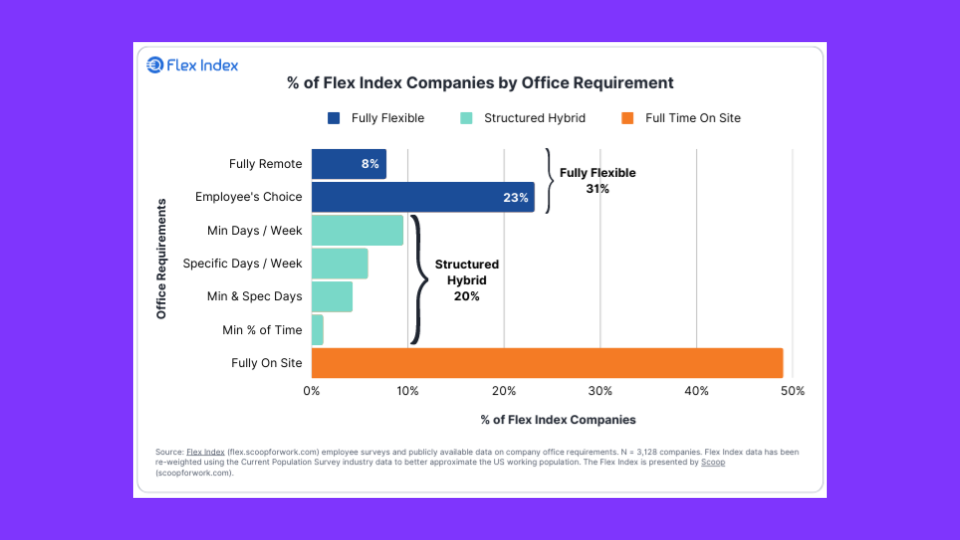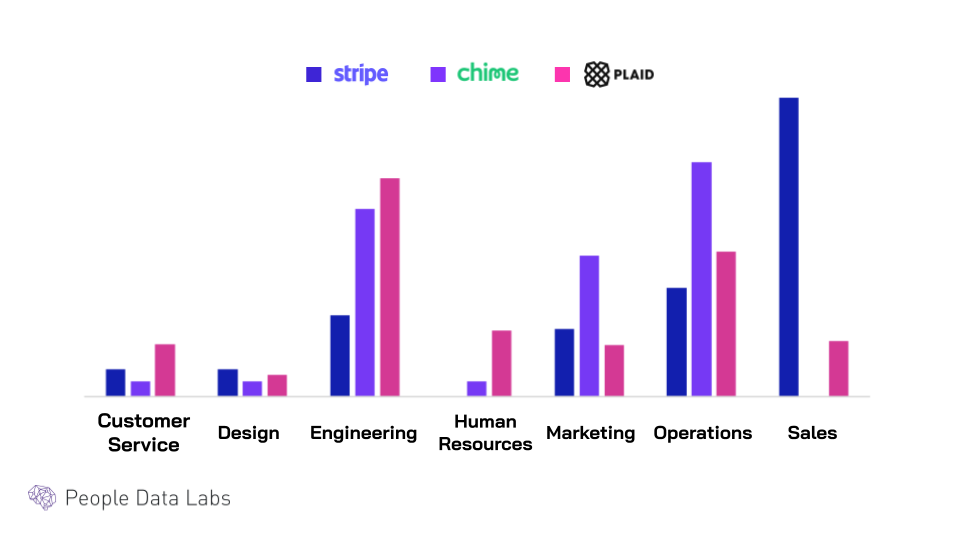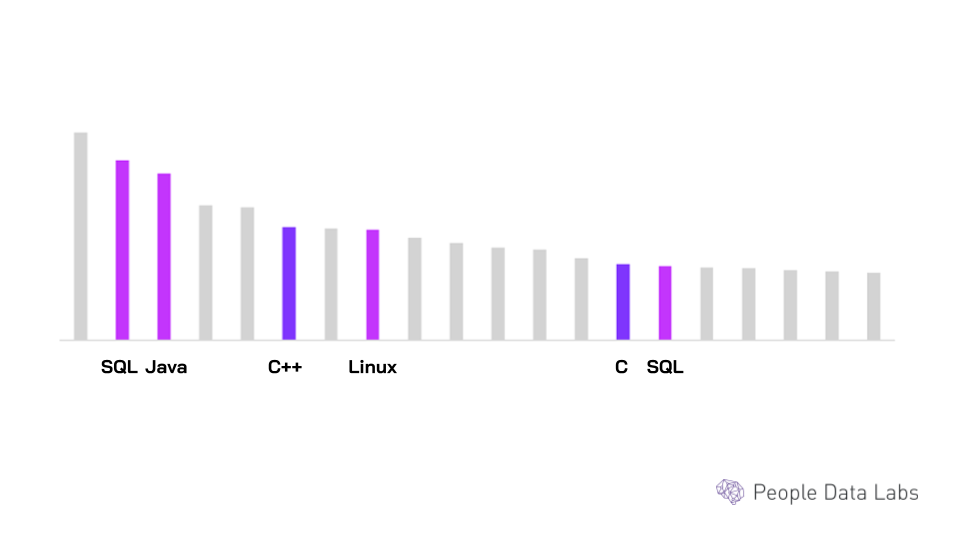
Data: Python, Java, and C++ are the Holy Trinity of Big Tech
October 20, 2022
You can learn a lot about an industry or company by analyzing the people and skill sets within its workforce. The challenge there is this information isn’t usually available, even if you work within one of those companies.
Having a firm understanding of skill sets for an industry or company greatly improves the ability to understand what skills to look for when hiring candidates, skills to recommend to candidates that are looking for employment in the industry, departments that competitors are investing in, distribution of skills, company/industry growth, and much more.
In the process of creating our Deconstructing Big Tech webinar, we leveraged our data to get an insider's view of the skill sets of Big Tech engineers. If you find what you read here insightful, we highly recommend watching the on-demand version.
A lot of the skills listed on our more than 3 billion rows of people data are very common “resume builder” style skills, like Microsoft Office and Management, and engineers are no different in this regard. PDL’s dataset reflects 7 million engineers listed Microsoft Office as one of their skills, 4.6 million engineers listed Excel, and 3.1 million listed Word. These are basic table-stakes skills for the modern workforce. However, this data does reinforce the importance of these skills for workers today. Imagine an engineer that doesn’t know how to use Microsoft Excel!
Due to the high volume of table-stakes skills, such as Microsoft Suite, we focused on skills that were more specific to engineering and less generic to the greater workforce. If you are a company searching for highly-skilled engineers, perhaps filter out common skills to hone in on the skills that matter for your hiring strategy.
Just over 6 million engineers in our dataset reported being skilled at project management, 5.7 million reported being skilled in management, and 3.7 million reported being skilled in leadership. The highest-ranking development language for engineers overall is SQL with 4.5 million engineers, followed by Java with 3.8 million, C++ with 2.5 million, and C with 2.4 million.
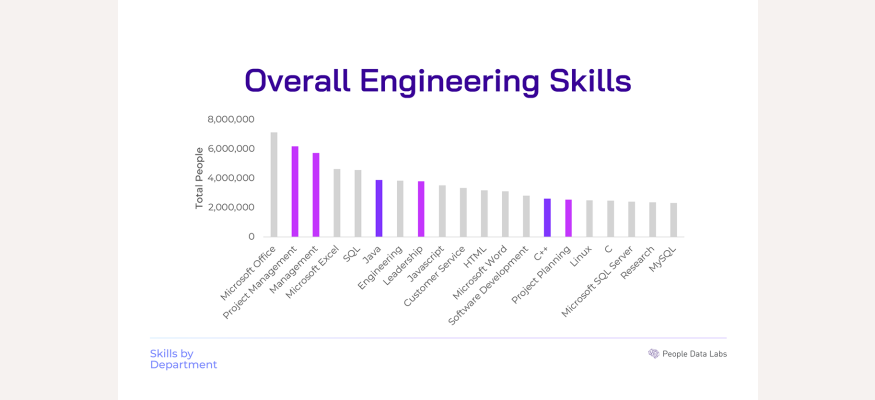
Conversely, when we look at engineers at big tech companies, a very different profile emerges. Starting with Amazon, Java, C++, and Python are reported as skills by more than 40% of the engineers.
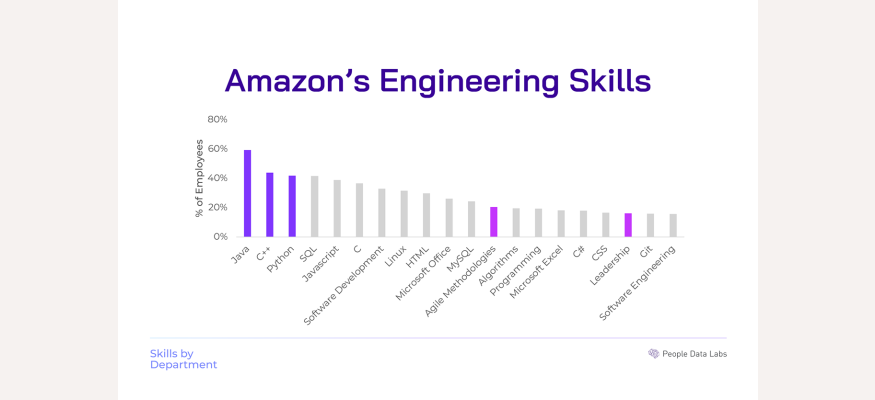
Apple engineers responsible for building a wide range of products quite different to Amazon’s still show the same pattern with the “holy trinity” of skills: Java, C++, and Python.
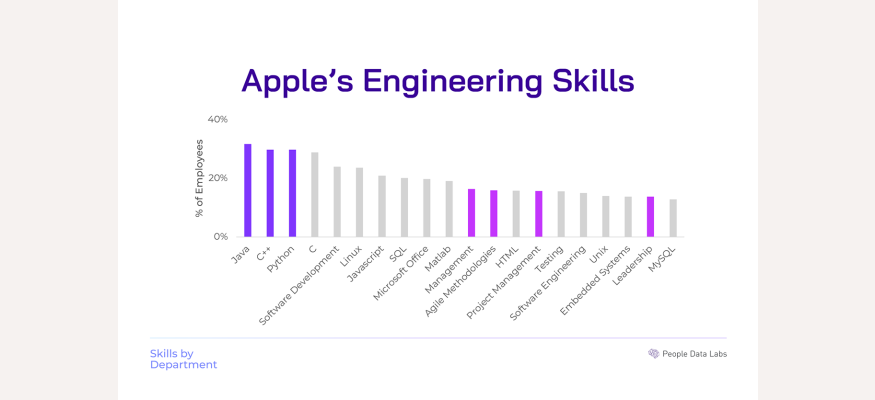
Google follows the same pattern of development language skill distribution.
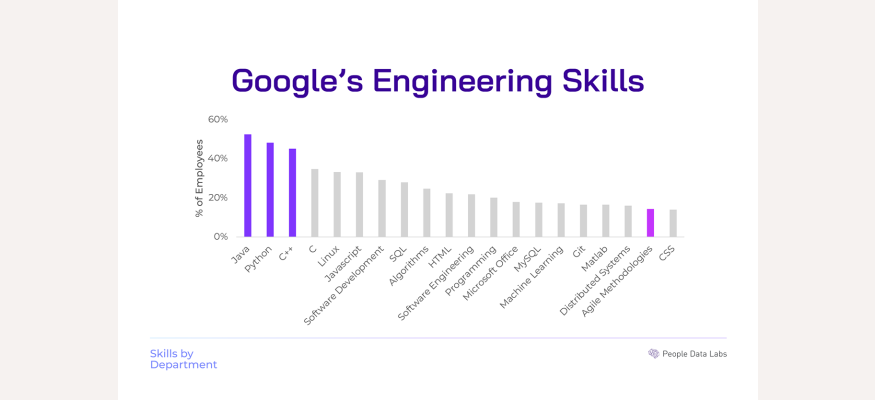
We see the same thing for Facebook.
Interestingly, project management skills like “agile methodologies” and “leadership” that ranked highly with engineers overall are much less prominent among Big Tech engineers.
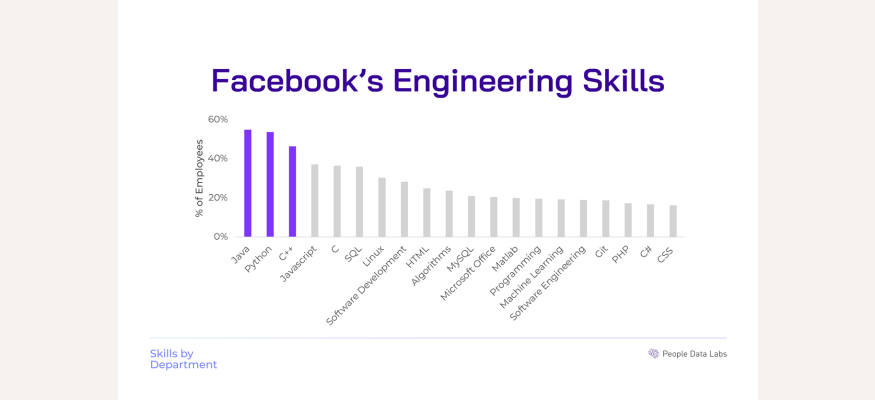
As you can see, analyzing skill sets across an industry or company enables you to form an objective understanding of the skills that drive their success and/or what they prioritize. It also allows you to sort through the “noise” of redundant data points, such as skills in Microsoft suite, so you can focus on data points that matter for your use case.
You can find many more insights in addition to the ones you read here in our Deconstructing Big Tech webinar. Check out the on-demand version here!
If you’d like to form insights like this yourself, try out our data for free with an API key trial or speak to a data consultant if you have any questions.



